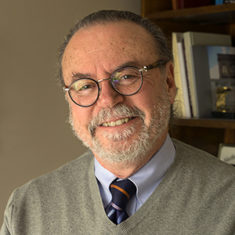My Fullest Understanding Of Who I Am And What I Am About Has Everything To Do With How I Treated Others And How They Treated Me.
By Thomas J. Roach
Many years ago, a supervisor of mine told me that he almost choked to death at a dinner meeting with corporate executives. One of the men at the table performed the Heimlich Maneuver on him and he survived.
Approximately a year later, my supervisor made a budget decision and was responsible for firing the man who saved his life. My supervisor told me the story to teach me a lesson. I was supposed to learn that someone with business acumen values profit-making above all other considerations.
I never learned that lesson, and here is why.
After managing people and teaching university courses on-and-off for more than 40 years, I know that the most important part of my career wasn’t the deadlines I met, and it wasn’t my lectures or my books. It was developing meaningful relationships and sharing in the successes and failures of others.
My fullest understanding of who I am and what I am about has nothing to do with my accomplishments, most of which are forgotten. It has everything to do with how I treated others and how they treated me. Whether because of or despite those relationships, they shaped me, gave me focus, and helped produce whatever sense of identity and wellbeing I now have.
I am not saying that no one should ever be laid off. We all know that there are countless justifiable reasons for removing someone. I have let people go myself, but if I were my former supervisor, I would quit before I would fire the man who saved my life.
Why Do We Work?
Is it to enhance the effectiveness of corporations? I spent two years as a newspaper editor, four years as head of public relations at a major medical center, two years advising the CEO of a Fortune 500 company, and eight years as a university department chair.
When I worked at these jobs, I expended time and energy and talent to meet deadlines, fend off negative publicity, improve corporate culture and provide resources for faculty and students, but if that was why I was there, then why is it that when I left these positions, I never gave another thought to their success or failure?
Of course, we take jobs to make money, but what motivates us to take a particular job, put in effort, feel good at the end of the day and even to quit? What we buy with our paychecks is important, but anyone who has lost a loved one will admit they would give up everything they have to save that one life. The human environment sustains us, the jobs and the corporate successes are secondary.
Corporations Exist to Serve People
It isn’t the other way around. They support shareholders, their employees, their customers and the community in which they operate. The values of the organization are counterproductive if they harm their human network.
I am tempted to say that companies that believe as I do will be more profitable, which I think is true, but that would be compromising my point, wouldn’t it?
My supervisor’s predicament was especially difficult because he was a corporate vice president of human resources. If anyone was supposed to be able to make the tough decisions, it was him. But I wonder what would happen if he told our CEO, I can’t fire that guy.
Would he appear weak? In fact, he might have been fired, and that is why the decision he made was the weak one. The hard decision is to resist the pressures of money and prestige and acknowledge a personal debt – a debt, by the way, that no amount of money and acclimation can repay.
It may have been necessary for the company to fire the executive who saved my supervisor’s life, but my supervisor shouldn’t have done it, even if it cost him his job.

Thomas J. Roach Ph.D., has 30 years experience in communication as a journalist, media coordinator, communication director and consultant. He has taught at Purdue University Northwest since 1987, and is the author of “An Interviewing Rhetoric.” He can be reached at [email protected].
